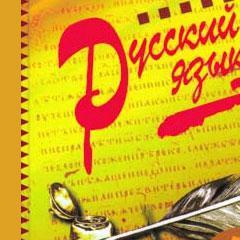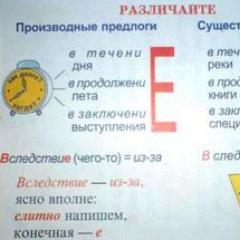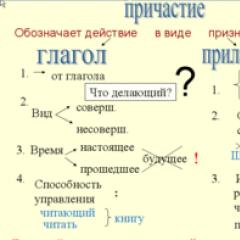Which word has the root ending in th. ТЬ and -ЧЬ in verbs unopr. forms. How to distinguish a suffix from a postfix
from under the incisor, sv..saya and falling into a well..leaky box 2. Mashenka surrounded her room with ... eyes 3. Only one peasant remained under arrest ... nka, and there was nothing to give birth to : and so not killed ... lives 4. People of the region ... drank the cart, and everyone pushed in there 5. Paradise with ... mouth did not get caught ... were on the wild apple trees 6. The eagle settled a little bit and immediately moved to another barn ... tel 7. You have eyes that… are sagging, and I’m still going to sit down to work. 8. I put ... til a sulfur match and brought it to the boy's nose: she saw ... his white eyes. 9. He was s ... sing, absolutely s ... s from pr..rody 10. According to his mentality, according to his pr ... habits and tastes, it is best for him to devote himself to ... b..simple occupations 11. Rasp ... pressed by all a little dry old man ... k, with fluffy, add..la village..deli ... dog..l to s..ykh in..loss, do not you .. going ten miles from your city..yes 13. Like the first flowers..you, po..wildered for in..trines in..autumn in..crying things. 14. At the stern of the Orion the Argentine flag was flying. 15. On the pr..mere r ... of the league of the peoples of India, it is clearly visible how the development of the obr..z of the gods from the ... to the human. 16. Look ... three, there, in the k ... rtuz, because there is no baku? 17. That way, in m..time of annoyance and ob..ldenia, it will suddenly become cloudy in the eyes. 18. So, this h..andny zap..kh forest is so nice ... after the fall ... 19. When Ognev approached the garden ... litka, a dark shadow separated ... from the low p ... l ... gardener. 20. Varvara tempted Mr. Stay in .. rented and apple p..style. 21. Pr ... please, what do ... wait for you in your correspondence. 22. Rook wanders through the fields, like a rural agr ... Nom. 23. All the deputies ... were on the chairs, overgrown ... zeros. 24. The war only to ... fell asleep ... with Dasha's prying finger. 25. One ... nokaya curve b ... cut r ... weak on the slope. 26. Our raft was littered with fish and bl ... became w ... um ser ... bromine. 27. In the morning, dusty sta ... barking streets, passed ... dili p ... lki and carts 28. Podsk ... cali riders with fak ... lami, nipple ... chili called ... m. 29. On his shaved head ... ve and on his forehead bl ... beads of sweat dripped. 30. Tears of delight were running down her face, or streams of sweat - she didn’t wipe them off. 31. Although it is difficult, it is necessary to comply with the new rules. 32. And here it was necessary to zag ... rresya! 33. Before ... having heeded Semyon's hut, the girls slowed down their pace and began to see ... a third at the illuminated windows. 34. At the hut a gloomy tree stands and looks at the z ... ryu. 35. K..rtina was h ... gum: near the lights of another ... sting and as if a deputy ... ralo, resting ... against t..mnota, round red ... rather reflective ... zhenie. 36. There is something sad in one m .. gil, m .. readable and highly .. practical. 37. By an effort of will st. .lived myself to listen to fleeting b .. sedams in the compartment. 38. More people - in ... more. 39. You go and suddenly you see: ahead ... near the very d..rogy there is a force ... t, similar to m ... nakha. 40. They crossed ... a pl ... sonic bridge, and horse and foot p ... lki were located ... on the left bank, in ... rst, five from the city. 41. And already beyond the jagged edge of the r ... vnina m..gali z ... rnitsy, guns roared, lifted .. waved in long ch..rvy r..kety, and their fires, slowly falling, illuminated the dark damp earth. 42. The river, flooded, wide, bl..become a mirror, and the low bank to the left m..rtsal p..skom and bright green..new grass. 43. A lot of people walked along the flat brown river to ... 44. See ... the sentiment has mastered ... the matter of him, see ... the joyful shade.
Is the suffix or ending -ty (s) in the indefinite form of the verb?
Ty (-ty) is a formative suffix, since it forms the infinitive form: read, carry. The infinitive (the indefinite form of the verb) is an unchangeable form, so it simply cannot have an ending, because the ending is a variable part of the word. By cutting off -ty (-ty) we get the basis of the infinitive, from which many verb forms are formed: build-th - build-l, build-vsh-i.
In a school textbook, by tradition, -ty (s) is highlighted as endings.
In the new manuals, there is a double option, when -ty (s) is highlighted both as an ending and as a suffix. Apparently, the most reasonable solution for the teacher would be to teach to highlight this morpheme as recommended in the textbook, while explaining its nature. Students should be aware that this is a formative suffix.
But -night at the end of the infinitive is not a separate morpheme at all, it is included in the root ... Compare: bake, bake, bake.
How to distinguish a suffix from a postfix?
In words that have an ending, the suffix usually comes before the ending. But the suffix can be found after the end. It is called a postfix.
Postfixes are observed in verbs and in separate categories of pronouns: I wash, formed, eat, someone, some one, did come. They can be written with a word and together (first two examples), and hyphenated (other examples).
By origin, all postfixes are independent words.
To distinguish a postfix from a suffix, you just need to remember all the postfixes. There are few of them, in the examples above, they are all named.
What is the sign to highlight postfixes?
There are several options for highlighting: 1) as a suffix, 2) in any way, 3) as a "prefix in reverse" (in the other direction).
The most logical, in our opinion, is the allocation of a postfix with a suffix sign, since, according to the definition, a postfix is a suffix after the end. But in words you need to explain that this is a special morpheme and call it correctly.
Do postfixes form the basis of a word?
The verb has postfixes and word- and form-building ones, while pronouns have only word-building ones. Formative postfixes are not included in the base of the word, word-forming ones are included.
The verb postfix -sy (-s) requires a special note. It can be both word and formative. It is form-forming if it forms the form of a pledge: pouring, getting angry, throwing. In a number of cases, the affix -sya acquires the meaning of a word-forming morpheme and enters the base, which in this case becomes intermittent (it is interrupted by the ending and / or the form-forming suffix): cry-t-sya, read-l-sya, rampant-vsh-iy- Xia. It is not difficult to distinguish such verbs: they are not used without -sy.
The question "Th is a suffix or an ending of a verb?" for more than a dozen years, both ordinary people and eminent philologists have been asking themselves. The modern approach to the study of the Russian language allows for the existence of two points of view, each of which has its own pros and cons.
Th is a suffix or an ending?
For a long time, school grammar considered "t" and "ti" as an ending or a formal indicator of an infinitive. To this day, the majority of textbooks intended for higher educational institutions adhere to the same position. Among linguists, the opinion that "t" is the ending is shared by N. M. Shansky, M. T. Baranov, G. S. Kuznetsov.
Defending their version, scientists reason as follows: the infinitive means that the ending can be distinguished from it. Such an explanation cannot be called satisfactory; moreover, it leads to the appearance of contradictions. This is due to the fact that the infinitive in modern linguistics is considered an unchangeable word, and, accordingly, cannot have an ending.
Th - suffix or ending for verbs?
New school textbooks support a different point of view, according to which "t", "ti" in verbs are suffixes. This theory was developed by such linguists as Babaytseva V.V., Valgina N.S. Answering the question: “Th is a suffix or an ending?”, Scientists, first of all, tried to prove the inconsistency of another position that reveals this problem. They argued that "t" in a verb cannot be inflection, since it does not express the grammatical meaning of the word and is not preserved in forms derived from the infinitive.
This approach seems convincing, but it also caused a lot of controversy in linguistic circles. “If“ t ”is a suffix, then why is it not included in the basis of the word?” - this question became one of the main questions for everyone who got acquainted with the new theory. The answer is easy if you remember the basics of morphemics. In modern Russian, suffixes are divided into form-building and word-building. Morphemes of the first type are not included in the stem. That is what we see in the infinitive.
What about "who"?

Do not forget that in the Russian language there are examples of the initial form of the verb that end in "chi". How to deal with such cases? What is "whose" in such words: an ending or a suffix?
There are also several answers to these questions:
- It is a suffix.
- Represents inflection.
- Included in the root.
The first two points of view are outdated. "Whose" was defined as a suffix or ending by analogy with "t" and "ti".
Modern linguistics believes that this combination is part of the root. To prove that this opinion is correct, you can change the verb: bake-bake. In the forms formed from the infinitive, "whose" is preserved, it means that it is part of the root.
What is the bottom line?
It is impossible to unequivocally answer the question: "Th is a suffix or an ending?" Both points of view described above are considered valid in modern Russian. Each of them has its own supporters. However, at present, the school curriculum gives preference to the position according to which "t" is a formative suffix. In higher education institutions, it is customary to consider both theories.



